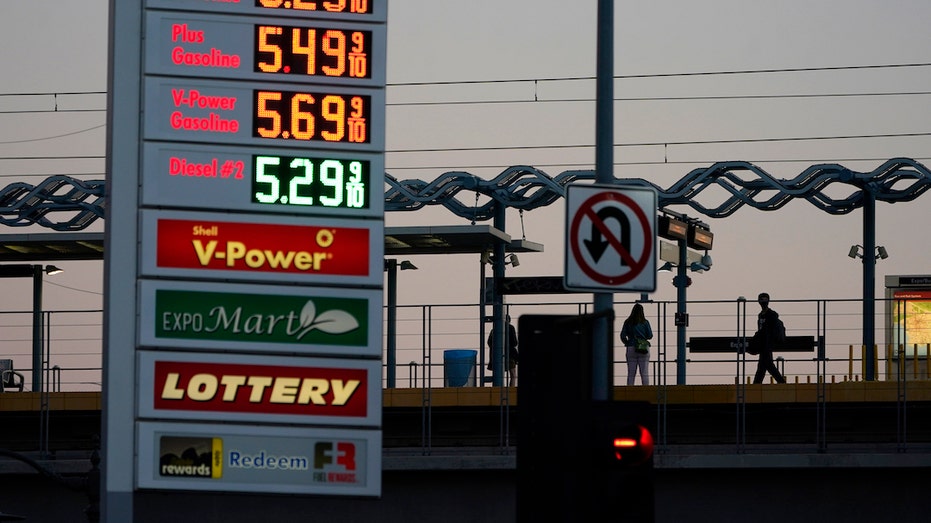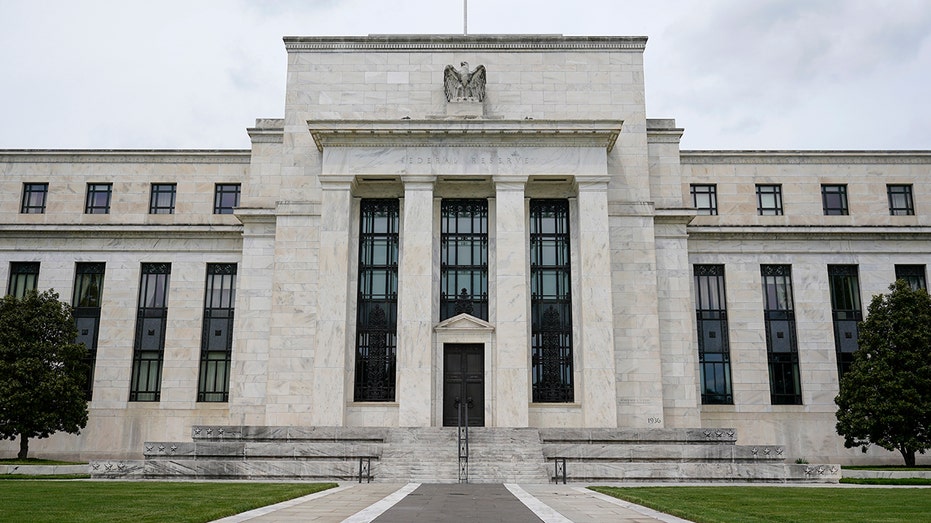SlateStone Wealth chief market strategist Ken Polcari and Tocqueville Asset Management portfolio manager John Petrides discuss if geopolitical events will prevent the Fed from raising interest rates on ‘The Claman Countdown.’
Goldman Sachs economists warned the probability of the U.S. economy plunging into a recession in the next year has risen dramatically in the wake of the Russia-Ukraine war.
The economists, led by Jan Hatzius, cut their forecast for economic growth this year to 1.75% from 2.0% and noted that such an outlook means there is a “higher risk” of about 20% to 35% that the U.S. enters a recession over the next year.
RUSSIA INVADES UKRAINE: LIVE UPDATES
“While our baseline forecast assumes that further service sector reopening and spending from excess savings will keep real GDP growth positive in the coming quarters, uncertainty around the outlook is higher than normal,” they wrote in the Thursday analyst note. “We view the risks of a recession as broadly in line with the 20-35% odds currently implied by models based on the slope of the yield curve.”

Gas prices are advertised at over $5 a gallon Monday, Feb. 28, 2022, in Los Angeles. (Associated Press / AP Newsroom)
The downgrade comes after the Labor Department reported that consumer prices soared 7.9% in February, the fastest pace since January 1982, when inflation hit 8.4%. Consumers are paying more for everyday necessities, including groceries, gasoline and cars.
FED EXPECTED TO HIKE RATES THIS WEEK, DESPITE UKRAINE VOLATILITY
The eye-popping reading – which marked the ninth consecutive month the gauge has been above 5% – has ramped up pressure on the Federal Reserve to chart a more aggressive course in normalizing monetary policy.
The central bank announced Wednesday that it would raise interest rates for the first time in three years as policymakers, hiking the benchmark fund by 25 basis points and bringing to an end the ultra-easy monetary policy put in place two years ago to prop up the economy through the coronavirus pandemic.

Federal Reserve Chair Jerome Powell speaks during a news conference in Washington, March 3, 2020. (Associated Press / AP Newsroom)
Hiking interest rates tends to create higher rates on consumer and business loans, which slows the economy by forcing them to cut back on spending.
The rate liftoff, which puts the benchmark federal funds rate at a range between 0.25% and 0.5%, is likely just the start of a series of increases intended to curb runaway inflation.
New economic projections released after the meeting show that policymakers expected six more, similarly sized increases over the course of 2022 after consumer prices hit a 40-year-high. It marks a considerable shift from just six months ago, when half of the central bankers believed interest rate increases were not warranted until at least 2023. Fed officials also expect inflation to remain elevated, ending 2022 at 4.3% – far above the Fed’s annual target of 2.3%.
GET FOX BUSINESS ON THE GO BY CLICKING HERE
During his post-meeting news conference, however, Chair Jerome Powell downplayed broader economic concerns from the war and aggressive policy tightening.
“The probability of a recession in the next year is not particularly elevated,” Powell told reporters, citing the strong labor market, solid payroll growth and strong business and household balance sheets. “All signs that are this is a strong economy, and one that will be able to flourish in the face of less accommodative monetary policy.”


